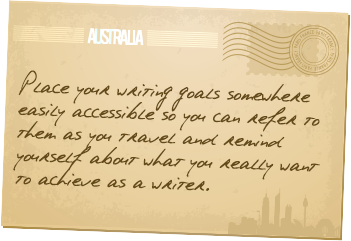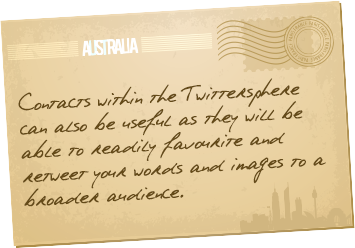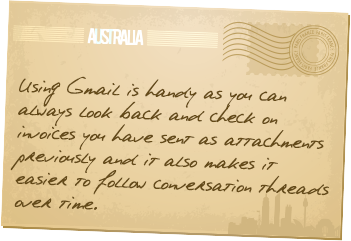It may seem like every writer’s dream, but taking your writing skills on a road trip is a little harder than you might first think! After completing an 11 000 kilometer road trip around Australia, education author Anne Vize shares some tips for taking your writing on the road.
Set your own goals
 Before you leave for a road trip it can be useful to set some goals for yourself about what you would like to achieve. As our own road trip was to extend for eight weeks and take in some of this country’s most isolated but also spectacular places, it was important to work out what I wanted to achieve in a writing sense and also what was important for the sheer pleasure of travelling and exploring.
Before you leave for a road trip it can be useful to set some goals for yourself about what you would like to achieve. As our own road trip was to extend for eight weeks and take in some of this country’s most isolated but also spectacular places, it was important to work out what I wanted to achieve in a writing sense and also what was important for the sheer pleasure of travelling and exploring.
Writing down goals can help get your thinking clear in your head, and sometimes the simple act of writing a series of goals can help avoid that almost inevitable writer’s procrastination which sometimes sets in—especially when there always seems to be something better to do! Be reasonable in your expectations of yourself and don’t expect that you will be able to complete absolutely everything on your list. Place your writing goals somewhere easily accessible so you can refer to them as you travel and remind yourself about what you really want to achieve as a writer.
Make important contacts
 If travel writing is your thing, make contacts in the sector before you begin your trip. This might include contacting the editors of some travel magazines or websites, or linking with publishers of travel websites. Contacts within the Twittersphere can also be useful as they will be able to readily favourite and retweet your words and images to a broader audience than you can possibly reach on your own. Most tourism operators have twitter accounts and Facebook pages, and these can be useful in developing leads for stories and articles and for posting updates on your work.
If travel writing is your thing, make contacts in the sector before you begin your trip. This might include contacting the editors of some travel magazines or websites, or linking with publishers of travel websites. Contacts within the Twittersphere can also be useful as they will be able to readily favourite and retweet your words and images to a broader audience than you can possibly reach on your own. Most tourism operators have twitter accounts and Facebook pages, and these can be useful in developing leads for stories and articles and for posting updates on your work.
Contacts can also include accommodation providers or businesses which run tours, activities or experiences. Focus on things which are likely to appeal to your readership rather than simply writing a bucket list of all the attractions you would like to visit yourself. The fun and quirky can often be more appealing to a reader than the tried and tested theme parks, walking trails and best beaches. Think ‘how I got lost and found in the alleys of Melbourne’ rather than ‘I went to Disneyland for the day and here’s what I did’.
Managing your business
 Writing on the road isn’t all about wandering pristine beaches and tweeting updates from the summit of a mountain (sadly). There needs to be a degree of administration and paperwork which happens along the way too, as with any business. Keep a record of your articles, posts and completed writing tasks to make the process of invoicing a little easier. Check before you leave that you have something simple and readily accessible such as an Excel spreadsheet for managing addresses, names, emails, bank account numbers and the like so you can send invoices while you go. Using Gmail is handy as you can always look back and check on invoices you have sent as attachments previously and it also makes it easier to follow conversation threads over time. If you are likely to need to post out items such as books while you are on the road take a supply with you in a secure place so they cannot get damaged. A store of pre-paid envelopes is also useful, providing you know the weight and size of what you are posting will comply with postal regulations for your envelopes.
Writing on the road isn’t all about wandering pristine beaches and tweeting updates from the summit of a mountain (sadly). There needs to be a degree of administration and paperwork which happens along the way too, as with any business. Keep a record of your articles, posts and completed writing tasks to make the process of invoicing a little easier. Check before you leave that you have something simple and readily accessible such as an Excel spreadsheet for managing addresses, names, emails, bank account numbers and the like so you can send invoices while you go. Using Gmail is handy as you can always look back and check on invoices you have sent as attachments previously and it also makes it easier to follow conversation threads over time. If you are likely to need to post out items such as books while you are on the road take a supply with you in a secure place so they cannot get damaged. A store of pre-paid envelopes is also useful, providing you know the weight and size of what you are posting will comply with postal regulations for your envelopes.
Save yourself & your writing
Words can have a terrible habit of disappearing from your screen, particularly when you are writing them at the last possible moment and just before an internet café closes for the night. Take care with where you write, what format you use and how you save your work. Using an email platform such as Gmail is great as you can quickly email your latest draft of a piece to yourself and know that you will always be able to find it again.
 Internet services are not always reliable and there is nothing more frustrating than sitting down to research a piece and discovering that you cannot get online or that the internet is running more slowly than the toilet queue at a concert when the bells are ringing at interval’s end. Oh the agony of watching as page after page hovers and drifts on your screen, only to finally abandon all hope and announce that it has encountered an error and needs to shut down! On our own road trip we often found that internet and mobile phone reception would drop out about 20 kilometers out of town when travelling in outback areas. This meant I needed to plan ahead and make sure I was not reliant on accessing online information or making mobile calls while we were out of range.
Internet services are not always reliable and there is nothing more frustrating than sitting down to research a piece and discovering that you cannot get online or that the internet is running more slowly than the toilet queue at a concert when the bells are ringing at interval’s end. Oh the agony of watching as page after page hovers and drifts on your screen, only to finally abandon all hope and announce that it has encountered an error and needs to shut down! On our own road trip we often found that internet and mobile phone reception would drop out about 20 kilometers out of town when travelling in outback areas. This meant I needed to plan ahead and make sure I was not reliant on accessing online information or making mobile calls while we were out of range.
 Collecting physical brochures, flyers, booklets and the like from tourist information sites can be helpful in ensuring you can quickly access information when travelling, even when you are out of range of an internet connection. Use a filing system or colored folders so you can sort your resources into a meaningful collection, ready for quick access as you write. This can be used both while you are travelling and also when you return home. Mind you, I did discover that by the time we were at around the 9 000 kilometer mark I had brochures tucked into pockets, stuffed under seats and buried in the bottom of bags! It certainly took a deal of sorting out once I had the luxury of a flat surface to wrestle everything into some kind of meaningful order. Make sure you write the names and contact details of anyone you meet and store these in the same folder of information so you can refer to them later for quote requests or to check facts and details for your writing. Personal quotes and information can bring a travel based story to life and ensure you can always check the accuracy of your final copy before you publish.
Collecting physical brochures, flyers, booklets and the like from tourist information sites can be helpful in ensuring you can quickly access information when travelling, even when you are out of range of an internet connection. Use a filing system or colored folders so you can sort your resources into a meaningful collection, ready for quick access as you write. This can be used both while you are travelling and also when you return home. Mind you, I did discover that by the time we were at around the 9 000 kilometer mark I had brochures tucked into pockets, stuffed under seats and buried in the bottom of bags! It certainly took a deal of sorting out once I had the luxury of a flat surface to wrestle everything into some kind of meaningful order. Make sure you write the names and contact details of anyone you meet and store these in the same folder of information so you can refer to them later for quote requests or to check facts and details for your writing. Personal quotes and information can bring a travel based story to life and ensure you can always check the accuracy of your final copy before you publish.
About the author:
Anne Vize is a specialist author and small publisher who writes for the education, writing and aged care sectors. Her education e books can be found at the Authors Unlimited store of the Australian Society of Authors (https://authors-unlimited.org/author/anne-vize). Her latest titles include a guide to writing in the digital age Your Writing Futures—writing for the digital natives generation (Banksia Publishing) and Reading in the Moment written to help older people who have dementia enjoy the pleasure of reading (Speechmark).
Also by Anne Vize:
1. Making the Grade as a Freelance Educational Writer (article)



